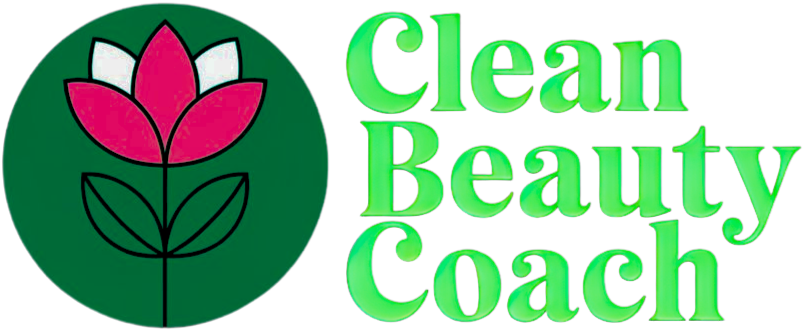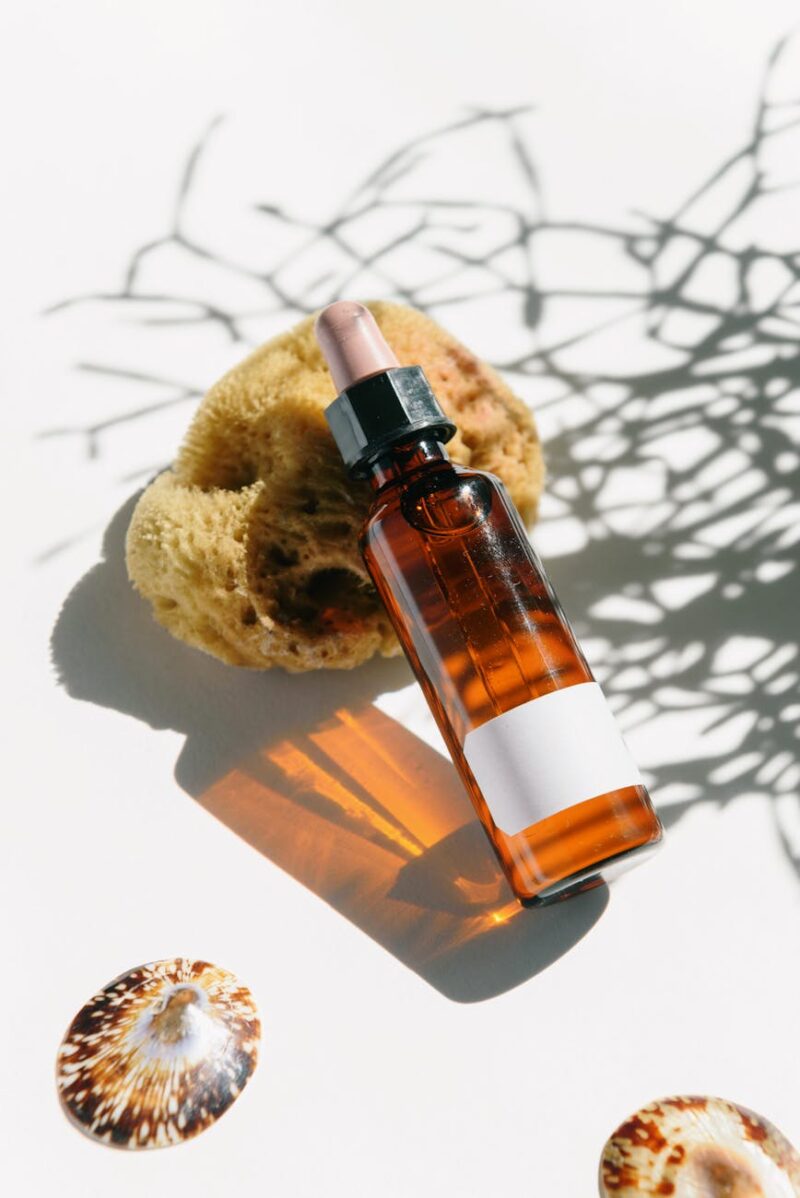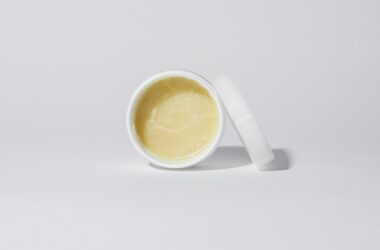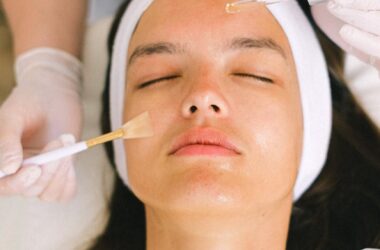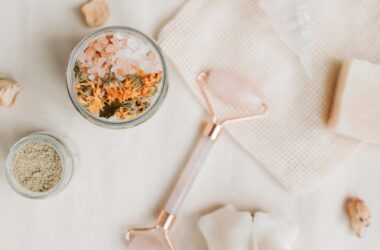When you search for an ingredient on a beauty product’s label, do you know what it is?
All these chemicals on the label seem so scary sometimes. From this perspective, it would seem more logical to use natural ingredients that are harmless, right?
That’s why the market for natural cosmetics has been steadily growing.
But what are natural ingredients in cosmetics really? Are they really so safe and harmless, as marketers would have us believe?
What are natural ingredients in cosmetics?
Natural ingredients in cosmetics are substances that are derived from plants, minerals, or animals. They are used in many beauty products, such as anti-aging creams and shampoos.
These ingredients reduce the risk of damaging side effects and are healthier for your skin.
These days, most people consider natural ingredients in cosmetics as synonymous with organic.
However, there are many factors to consider when choosing products that contain only natural ingredients.
Trying to figure out what the difference between natural and organic is can be a bit confusing for the average person.
The two terms are often used interchangeably by manufacturers and consumers alike, but there are some crucial differences between the two.
The primary difference between organic and natural ingredients in cosmetics is that organic products must meet specific standards established by a government agency (the USDA).
In addition to using ingredients that are grown without synthetic pesticides and fertilizers, organic products also cannot use ingredients produced using synthetic processes or genetically modified organisms (GMOs).
On the other hand, when manufacturers choose to use all-natural ingredients in their products, they can use whatever source of ingredient they deem appropriate.
While all-natural products do not have any specific government regulations placed on them, in many cases, these products do not contain harmful chemicals or GMOs.
Do natural ingredients in cosmetics really work?
You bet! In fact, when it comes to a healthy glow and a pretty face, some of the most effective ingredients are actually derived from Mother Nature herself.
Natural ingredients such as essential oils, sea minerals, and vitamins are great for your skin because they’re concentrated and very powerful in small amounts.
However, natural ingredients can’t do everything that synthetic chemicals can. In fact, many popular beauty products owe their effectiveness to the presence of synthetic chemicals.
Cosmetics are regulated by the Food and Drug Administration (FDA) in the United States, and if you’re buying cosmetics from companies based in the United States, then their claims should be backed up by science.
But if you’re shopping from overseas, then there’s no guarantee that what the company says is true.
Though a product may say it uses “natural” ingredients, that doesn’t mean it’s safe or effective.
Many natural ingredients — some of which are relatively safe when used internally — can cause irritation or allergic reactions when applied to the skin.
It’s important to do your research before buying products with natural ingredients.
Is the company selling pure ingredients?
Pure essential oils, for example, are never sold on their own because they don’t have any preservatives and will go bad quickly. Instead, these ingredients are diluted in other substances like vegetable oil and water.
If a company sells pure essential oils intended for aromatherapy use, then it’s probably not a good place to buy skincare products.
Has the company tested its products?
Companies should be able to tell you how they test their products, especially if they make any big claims about what those products might do.
What do all-natural ingredients mean in cosmetics?
All-natural ingredients are ingredients derived from natural sources, rather than synthetic ingredients. The term is used loosely to refer to a range of products and practices, but generally, it means that the products rely on plant or animal sources rather than synthetic chemicals.
While all-natural products may be better for your skin, hair, and nails, there are no legal or regulatory definitions of the term.
That means that two products with “all-natural” labeling could have entirely different ingredients.
The lack of regulation also means there’s no guarantee that any given product with “all-natural” claims will deliver on its promise (or even be safe).
For example:
There is no legal definition of “all-natural.” A company can define “all-natural” however it wants.
There are no qualifications for making the claim.
You can’t just trust the label.
Even if a product says it has “all-natural” ingredients, you still have to look at the list of specific ingredients to make sure you’re not buying something full of fillers and chemicals.
For example, a shampoo might say it is all-natural because it contains aloe vera extract, but it might also contain a bunch of other questionable ingredients like silicone and petroleum jelly.
How are natural cosmetics made?
Natural cosmetics are made from natural products that are derived from plants. One of the most popular ingredients in natural cosmetics is aloe vera.
Natural cosmetics are not only good for your health, but also for nature and the environment.
In addition to being more environmentally friendly than commercial products, they are also kinder to your skin.
It is believed that natural cosmetics can help protect against inflammation and even cancer.
They contain no artificial substances and have a positive effect on the skin’s natural regeneration processes.
How are natural ingredients different from synthetic ones?
The major difference between natural and synthetic ingredients is that natural ones are derived from living organisms, while synthetic ingredients are made in laboratories.
Both types of ingredients can be harmful, both can be beneficial, and neither is inherently better than the other.
It all depends on what you want to do with them.
How to find cosmetics that use natural ingredients
Find out which cosmetics use natural ingredients. Many cosmetic companies use “natural” ingredients in their products, but the truth is that there are no legal guidelines for the use of this term.
The FDA, however, defines “natural” as “nothing artificial or synthetic.
Get the scoop on what’s natural and what isn’t before you go shopping. Here are 10 tips to help you get started:
1. Look for words like “natural,” “organic,” “eco-friendly” and “vegan.”
These terms tell you that the ingredient was derived from plant-based materials rather than petroleum byproducts.
If a product includes any ingredients with these words in them, those are probably the most natural ingredients it contains.
2. Watch for the word “made with.”
When a company says its product is made with natural ingredients but doesn’t explicitly say that those ingredients are the only ones in the product
It’s a good idea to check an ingredient list before buying it just to make sure it’s not full of chemicals and colorants anyway.
3. Look for certified organic ingredients
To be considered organic, cosmetics must contain at least 70% certified organic ingredients by weight.
The USDA National Organic Program regulates this process in the United States and has developed a list of approved substances to use in organic cosmetics; they must also be handled separately from non-organic products to avoid contamination.
If you aren’t sure if something is organic, look for a certification logo (such as USDA Organic or ECO CERT).
4. Avoid parabens, sulfates, and phthalates.
Parabens are found in many skincare and makeup products, and they’re used as preservatives because they help prevent bacteria from growing in them (since bacteria can cause the product to spoil).
However, parabens have been shown to mimic estrogen in the body, which could lead to reproductive problems like low sperm counts in men and infertility issues in women.
5. Check the ingredients list
If you want to know whether a product uses natural ingredients, check the ingredients list for words like “plant-derived” or “botanical.”
That indicates that the product contains natural ingredients like oils and flower waxes, which have been used for centuries in skincare applications because they’re effective and inexpensive.
6. Do your research online
Check out forums and blogs dedicated solely to natural cosmetics and read what other people have to say about different brands and products.
Don’t just search for reviews on specific companies—read about what ingredients are safe to use on sensitive skin, or how best to take care of your hair after using different kinds of shampoo.
Final Thoughts
Thanks to the natural ingredients in cosmetics, we have been discovering new opportunities to protect and enhance our health.
Thus, if you are looking to purchase cosmetic products and want to find natural ingredients, you should look carefully and try to find those that are safe for your skin.

